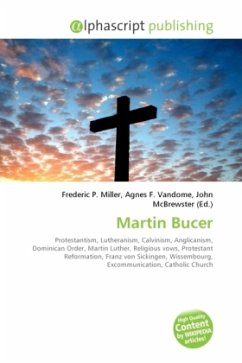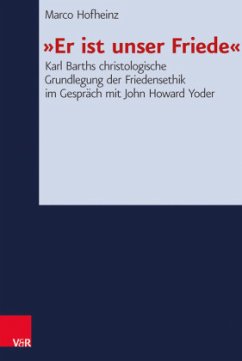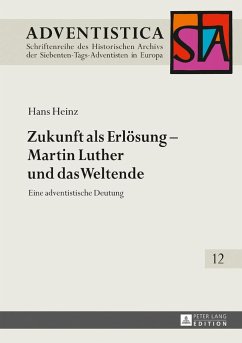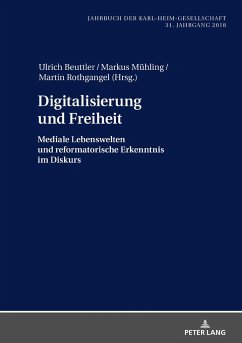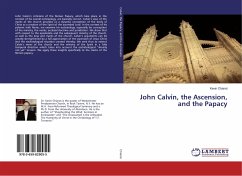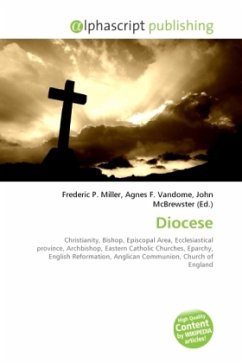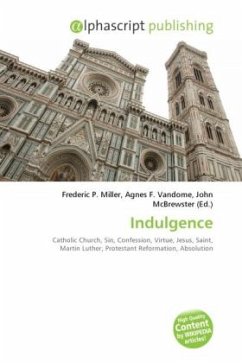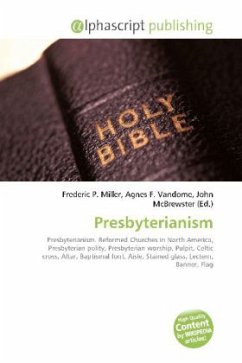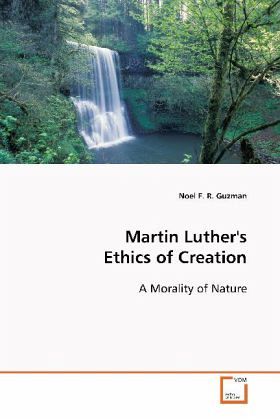
Martin Luther's Ethics of Creation
A Morality of Nature
Versandkostenfrei!
Versandfertig in 6-10 Tagen
51,99 €
inkl. MwSt.

PAYBACK Punkte
26 °P sammeln!
In this well-timed, important book, Luther scholarand ethicist Noel F.R. Guzman romanticizes thecreational values and critiques the human-centeredthoughts of Martin Luther, a pivotal figure ofChristianity and Western civilization. This bookmends the destructiveness of the human-centeredelements in Luther''s thought, largely shared with thebroader Christian tradition, bringing Luther intocontact with non-Western critiques, particularly theaboriginal communities, as well as criticizing theethnocentric Christian mission. It further lays anethic based on Luther''s God-centered perspectiveagainst t...
In this well-timed, important book, Luther scholar
and ethicist Noel F.R. Guzman romanticizes the
creational values and critiques the human-centered
thoughts of Martin Luther, a pivotal figure of
Christianity and Western civilization. This book
mends the destructiveness of the human-centered
elements in Luther''s thought, largely shared with the
broader Christian tradition, bringing Luther into
contact with non-Western critiques, particularly the
aboriginal communities, as well as criticizing the
ethnocentric Christian mission. It further lays an
ethic based on Luther''s God-centered perspective
against the anthropocentric tendencies of Christian
tradition in order to redirect a more holistic
mission and a right relationship with nature. Modern
Christianity, which undeniably has contributed to the
ecological crisis, is admonished to reclaim Luther''s
ethics of creation and the virtues of frugality,
humility, love and cross bearing. In this modern age
of profit-oriented globalization and scientific
advances, this book caters usefulness to economists,
politicians, religious people, scientists,
ecologists, ethicists, professors, students, and all
who love the future of the planet.
and ethicist Noel F.R. Guzman romanticizes the
creational values and critiques the human-centered
thoughts of Martin Luther, a pivotal figure of
Christianity and Western civilization. This book
mends the destructiveness of the human-centered
elements in Luther''s thought, largely shared with the
broader Christian tradition, bringing Luther into
contact with non-Western critiques, particularly the
aboriginal communities, as well as criticizing the
ethnocentric Christian mission. It further lays an
ethic based on Luther''s God-centered perspective
against the anthropocentric tendencies of Christian
tradition in order to redirect a more holistic
mission and a right relationship with nature. Modern
Christianity, which undeniably has contributed to the
ecological crisis, is admonished to reclaim Luther''s
ethics of creation and the virtues of frugality,
humility, love and cross bearing. In this modern age
of profit-oriented globalization and scientific
advances, this book caters usefulness to economists,
politicians, religious people, scientists,
ecologists, ethicists, professors, students, and all
who love the future of the planet.



